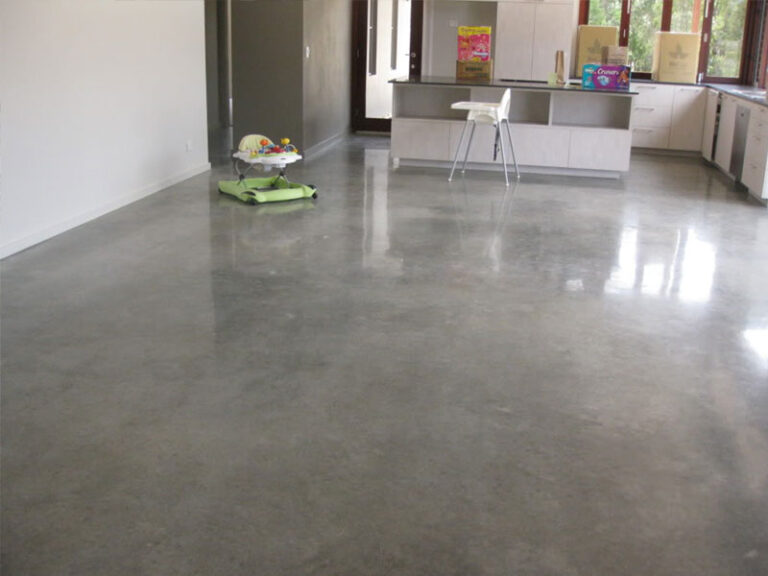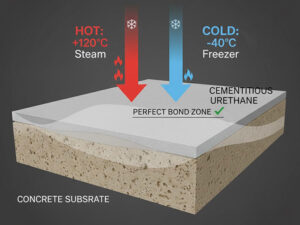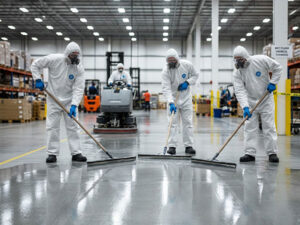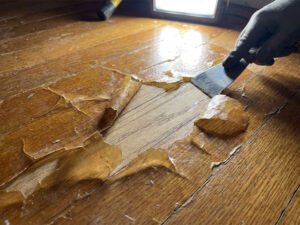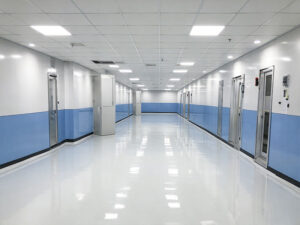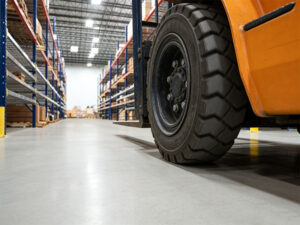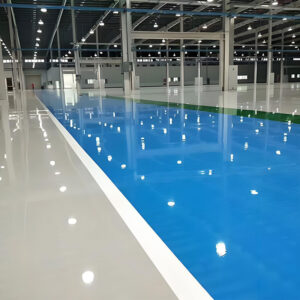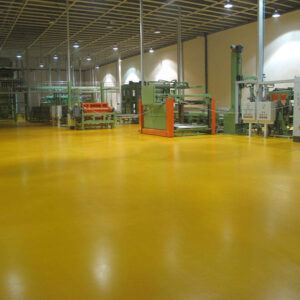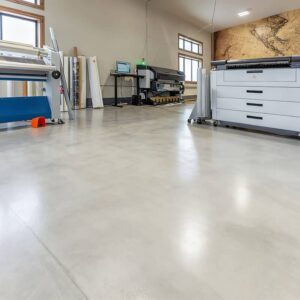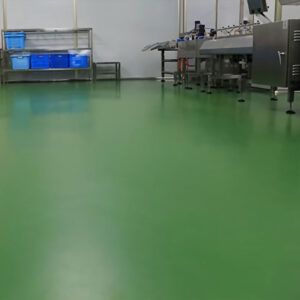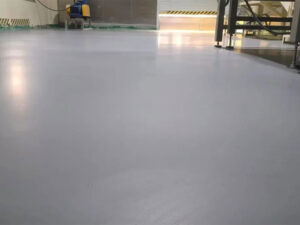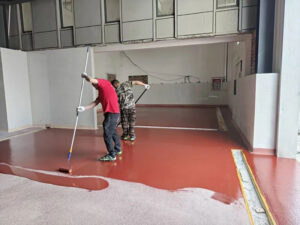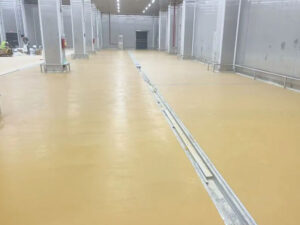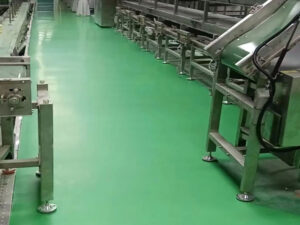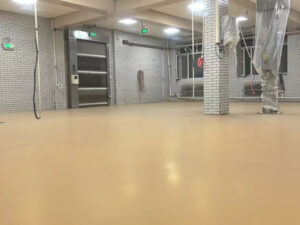1. Introduction
When choosing flooring for industrial, commercial, or residential spaces, polished concrete floors and epoxy flooring are two of the most popular options. Each has unique advantages, but they differ significantly in cost, durability, maintenance, and aesthetics.
Many property owners, architects, and contractors often wonder:
- Which is more cost-effective?
- Which is easier to maintain?
- Which performs better in high-traffic or chemical-exposed environments?
This article provides a detailed polished concrete vs epoxy floor comparison, covering installation costs, long-term maintenance, durability, and design options to help you make the best choice.
2. What Are Polished Concrete and Epoxy Floors?
(1) Polished Concrete Floors
Polished concrete is created by grinding, sealing, and polishing an existing concrete slab. Key features include:
- Industrial-chic look, ideal for modern minimalist designs.
- High durability, suitable for warehouses, retail stores, and offices.
- Eco-friendly, as it uses the existing slab without additional materials.
Best for:
✔ Industrial facilities
✔ Retail spaces
✔ Residential lofts
✔ Office buildings
(2) Epoxy Floors
Epoxy flooring consists of resin + hardener applied as a coating. Common types include:
- Water-based epoxy (eco-friendly, good for interiors)
- Solvent-based epoxy (chemical-resistant, ideal for factories)
- Self-leveling epoxy (ultra-smooth, used in labs and cleanrooms)
Best for:
✔ Garages
✔ Hospitals & labs
✔ Food processing plants
✔ Showrooms (custom colors/patterns available)
3. Cost Comparison: Polished Concrete vs Epoxy
(1) Initial Installation Cost
| Flooring Type | Avg. Cost (per sq ft) | Key Cost Factors |
|---|---|---|
| Polished Concrete | $3 – $9 | Concrete condition, polish level (matte to high-gloss) |
| Epoxy Flooring | $4 – $15 | Coating thickness, subfloor prep (crack repair needed?) |
Key Takeaways:
- Polished concrete is cheaper if the existing slab is in good condition.
- Epoxy floors cost more but offer greater customization (colors, metallic effects, etc.).
(2) Long-Term Costs
- Polished concrete lasts 20+ years with minimal maintenance (just resealing).
- Epoxy floors may need recoating every 5-10 years due to wear.
Bottom Line:
- Budget-friendly + long-term? → Polished concrete
- Custom design + short-term protection? → Epoxy
4. Maintenance Requirements
(1) Polished Concrete Maintenance
- Daily cleaning: Sweep or mop.
- Resealing: Every 2-3 years to prevent stains.
- Chemical resistance: Resists oil but can etch from strong acids.
(2) Epoxy Floor Maintenance
- Cleaning: Avoid harsh chemicals (can degrade coating).
- Repairs: Spot fixes possible; full recoating needed if badly damaged.
- UV sensitivity: Some epoxy yellows in sunlight (use UV-resistant formulas).
Maintenance Difficulty (Easiest to Hardest):
- Polished concrete
- Epoxy
5. Durability & Lifespan
| Feature | Polished Concrete | Epoxy Flooring |
|---|---|---|
| Scratch resistance | ⭐⭐⭐⭐⭐ | ⭐⭐⭐⭐ |
| Impact resistance | ⭐⭐⭐⭐ | ⭐⭐⭐⭐⭐ |
| Chemical resistance | ⭐⭐⭐ | ⭐⭐⭐⭐⭐ |
| Slip resistance | ⭐⭐⭐ (add anti-slip additives) | ⭐⭐⭐⭐ (textured options) |
| Heat resistance | Handles high heat | Can soften at extreme temps |
Key Conclusions:
- Epoxy is better for labs/garages (handles chemicals/oil spills).
- Polished concrete excels in warehouses/stores (superior wear resistance).
6. Aesthetics & Design Options
(1) Polished Concrete: Industrial Minimalism
- Can be stained (gray, brown, red).
- Gloss levels: matte, satin, high-shine.
(2) Epoxy: Unlimited Creativity
- Solid colors, metallic epoxy, 3D designs.
- Great for branding (company logos on floors).
Design Flexibility Ranking: Epoxy > Polished Concrete
7. Which Flooring Is Right for You?
Choose Polished Concrete If:
✅ You want low lifetime costs.
✅ You prefer an industrial/minimalist look.
✅ Your space has heavy foot traffic.
Choose Epoxy If:
✅ You need chemical/oil resistance (garages/labs).
✅ You want custom colors/patterns.
✅ You prioritize short-term durability (5-10 years).
8. Final Comparison & Recommendation
| Factor | Polished Concrete | Epoxy Flooring |
|---|---|---|
| Cost | Lower upfront & long-term | Higher (recoating needed) |
| Maintenance | Easier (just reseal) | More upkeep (avoid chemicals) |
| Durability | Best for abrasion | Best for chemicals/impacts |
| Aesthetics | Sleek, natural | Highly customizable |
Our Verdict:
- Commercial/industrial use? → Polished concrete (cost-effective + durable).
- Garages/labs? → Epoxy (chemical-proof + easy to clean).
- Homes/showrooms? → Pick based on style (minimalist vs bold designs).
Need help deciding? Consult a flooring specialist for your project!
Epoxy, polyurea, polyaspartic, polyurethane, tiles, how to choose?
